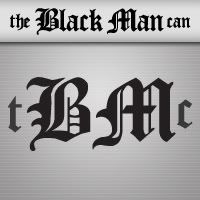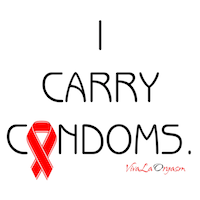As a sat among mostly Black woman in the theater I embraced myself to experience, the experience of watching a movie with Black folks, “side commentary”. I took note to the reactions of those around me, including the seven year old white boy and his mother who sat directly in front of me. The Black couple sitting beside them shifted slighted as Nia Long stated “that’s my n- - - - a for real” and the mother completely took her son’s focus off the movie as sex became a hair issue.
The movie was a mix between interviews with “entertainers” who were sure to be on the next episode of VH1’s Where Are They Now?, scientific evidence of the harsh chemicals in relaxers, the triangle trade of weave (hair extensions), the few black owned hair care companies, a battle of the stereotypes entitled “Bronner Brother's Hair Battle Royale” and incoherent chatter with no basis of truth at barber shops and beauty parlors. The films thesis steamed around Chris Rock’s six year old daughter Lola, who questioned why she did not have “Good Hair.” From this question Chris Rock journeyed to find our what is classified as “Good Hair” and the lengths that Black woman and men were willing to go to obtain it, including spending billions of dollars a year.
There were a few great points addressed in this film and for the most part the comedy driven documentary held my interest, but my interest began to sway as I waited for the other side of the coin to be flipped. I completely shut down for a few seconds as I watched the “natural” girl get silenced by four of her classmates for having a “cute and all afro”, but they wouldn’t give her a job or take her seriously because of her hair. One would think that a bang covering a third of your face would be far more distracting, and just when I thought she was going to be able to speak and discuss her natural hair choice, she was cut off by another weave addicted, creamy crack addict, telling her story.
Most of the woman’s hair stories were not really stories; I heard more excuses than the trails and tribulations many women experience as a result of their hair. Many stating that they wore weave to look “natural” or so their hair could bounce, flow, and blow in the wind. Yet, tested in theory, the most natural hair, your own hair, bounces and flows the nicest, as demonstrated on the Tyra Banks Show, “What is Good Hair?” episode.
For me, "Good Hair" missed the elements and stories of the girl whose brother picked on her because she was “bold headed”, the man who said he preferred woman with long hair, the women who was fired the day after she wore an afro to work, the women who now has no hair around her edges due to years of chemicals, braids, and intensive heat or the man who didn’t get a job until he cut his dreads off. Those elements were missing, but like Chris Rock said, “…they weren’t really interesting.”
As I walked out the theater and I heard men discussing “Anti-Weave” t-shirts, I immediately laughed. I had to wonder if these were the same men who preferred their woman “long hair, thick, red bone” (Lil’ Wayne), praised the video girls, models, singers and actors and held woman to their standards, preferred their woman to be mixed or disliked woman with short hair that is cut “like a boy.” I could only hope they weren’t. That reminded me of another missing element of the movie, men’s perpetuation of how and why woman obsess over their hair.
I am aware that Chris Rock could not combat or address all Black hair issues in a 95 minute film, but overall, I would give the movie and A for “Al Sharpton” (Effort) and a C for substance. Throughout the entire movie commentary spread, accompanied with laughter, but between Al Sharpton and the self proclaimed inventor of the Jeri Curl there were many truths displayed in the film. As we continue to comb our oppression and are haphazardly unaware of the damage these chemicals are doing to our bodies, we must first look at the history, our health, and the choices of Black people in regards to a matter as seemingly diminutive as our hair.
This problem has a history far deeper than Melyssa Ford understands and health issues that have yet to be explored (Septicemia (blood posing) being the eighth leading cause of death for Black woman)* As a woman with 100 percent natural hair, who also occasionally wears weaves, I think that the bottom line should be should be choice to wear your hair however you want to. Granted yellow, purple, green and orange are not natural hair colors, or hair that sticks a foot in the air, but the choice to wear you hair straightened one week, curly the next, braids on Thursday, and twists on Friday. You should have the choice to be nappy and happy, curly and content, or straight and satisfied, the choice is yours.
*“Ten Leading Causes of Death Among Females (All Ages), by Race/Ethnicity, 2006” (http://mchb.hrsa.gov/whusa09/hstat/hi/desc/208lcdTre.html).






